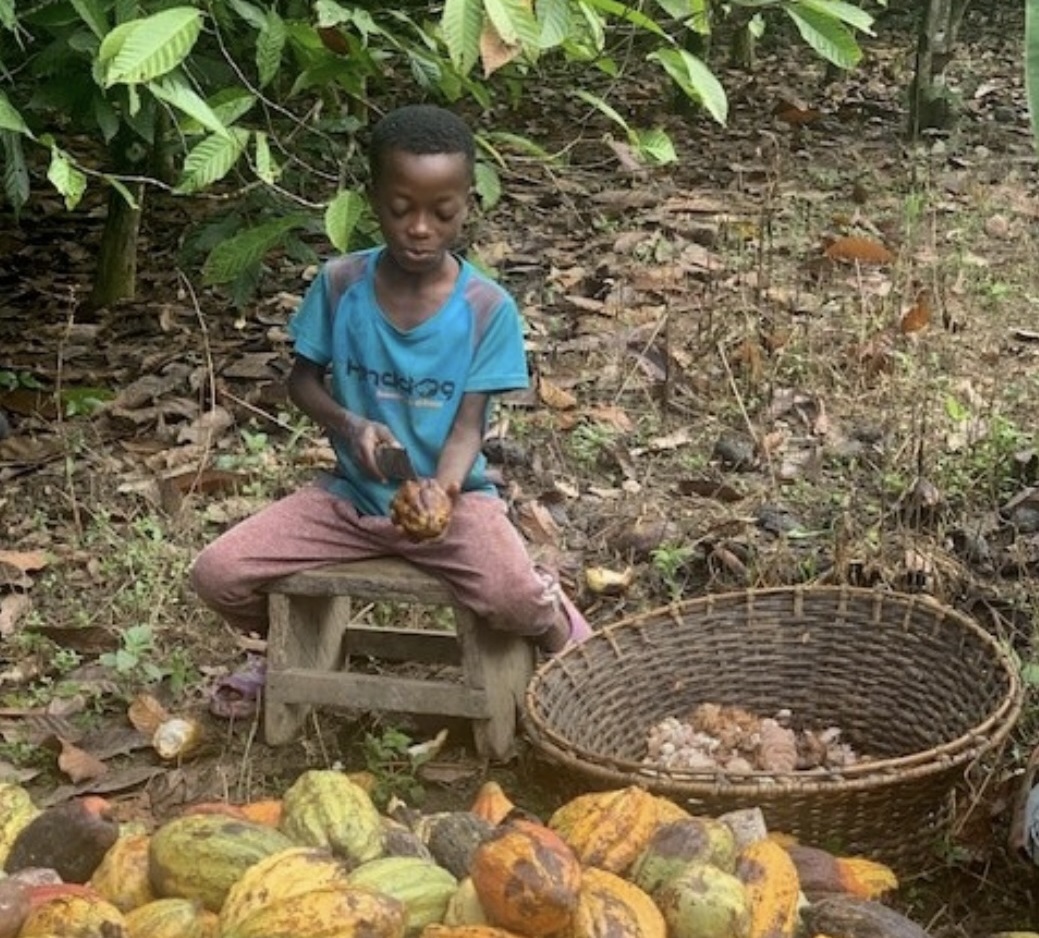WASHINGTON (CN) — Human rights advocates filed a class action this week against major chocolate companies behind famous treats like M&M’s, Snickers and Oreos over their failure to end the use of child labor on cocoa plantations in African countries like Ghana.
The suit, brought by International Rights Advocates in the D.C. Superior Court, accuses chocolate giants Mars, Mondelēz and Cargill of purposely dragging their feet to phase out the use of child labor, misleading the public about their efforts and condemning generations of children to a life of poverty and dangerous conditions.
The rights group highlights the Harkin-Engen protocol, an international agreement from 2001 — named for former Senator Tom Harkin and former Representative Eliot Engel, who helped broker the deal — aimed at ending child labor.
Harkin-Engen set a 2005 deadline, but the companies have since done little to meet that goal and have instead continued to push the deadline back. The current self-imposed deadline set by Cargill for 2030, according to the rights group.
The group expects the remaining companies to follow suit, spelling devastating impacts for children caught in this system, including the other plaintiffs — three families in which one of the parents and their children are current cocoa workers on plantations with supplier links to Mars or Cargill.
“Each extension of time of five or more years condemns another group of thousands of children, like plaintiffs herein, to a life of poverty, malnutrition, and lack of education that might have allowed them to escape this imposed system of child slavery,” the plaintiffs say in the lawsuit.
Mars, Mondelēz and Cargill did not respond to requests for comment.
The rights group, with an investigative crew from CBS News, met with a confidential whistleblower in Ghana — who is described in the suit as an official with a major buying company that works with the chocolate companies — who guided them through multiple plantations in September and October 2023.
Included in the suit are detailed descriptions of the conditions and injuries the child laborer plaintiffs have suffered from working on the cocoa plantations, some of whom began working when they were four years old. They each had to drop out of school due to an inability to pay school fees and began working on the plantations full time to help support their families.
“IRAdvocates was able to observe and document children, including plaintiffs, working and performing the worst forms of child labor,” the plaintiffs say in the complaint. “Not only were children, including plaintiffs, working on these plantations, the workers were mostly children.”
The children work with sharp machetes to weed and trim cocoa trees, cut down cocoa pods and open them. The suit includes photos of the scars across their bodies from the machetes.
They are also responsible for applying pesticides and herbicides to the crops without protective equipment. The poisons sometimes make the children sick and require hospital visits, the plaintiffs say.
The companies publicly laud their “rehabilitation efforts” to remove children from the plantations, reenroll them in schools and provide school supplies or build schools in the area, but according to the rights group, these efforts are nothing more than a photo opportunity.
Company representatives identify children and place them on a “rehabilitation list.” In some cases, the children receive at most a backpack with a workbook, (most don’t receive anything at all), then a company representative takes a photo of the children with the items and considers them “rehabilitated," the plaintiffs say.

Two children who work on a Mars-associated plantation say they returned to work immediately after the photo was taken and have never heard from the representative again regarding promises to help them return to school.
According to the whistleblower, many of the names on the list are made up to meet company demands to increase the number of so-called rehabilitated children, something he said he has done as it feels better “than looking a child in the eye and promising ‘rehabilitation’ that is a measly backpack and exercise book.”
In addition to the widespread use of child labor, cocoa farmers are also made victim by the companies’ practices, as they are systematically cheated out of fair prices for their crops by using weighted scales to underpay them, according to the plaintiffs.
The whistleblower reported that “nine kilos are stolen from the farmers for each bag they sell as part of a systematic practice by the companies.”
The rights group accuses the chocolate companies of unjust enrichment, negligent supervision of child laborers and cocoa farmers, theft, intentional infliction of emotional distress and violating the D.C. Consumers Protection Procedures Act.
Attorney Terrence Collingsworth represents the plaintiffs.
This past June, U.S. District Judge Dabney Friedrich dismissed a similar action against Cargill, finding the plaintiffs lacked standing as they did not who a “traceable connection” between the companies and the plantations they worked on in Mali and the Ivory Coast.
Subscribe to Closing Arguments
Sign up for new weekly newsletter Closing Arguments to get the latest about ongoing trials, major litigation and hot cases and rulings in courthouses around the U.S. and the world.









